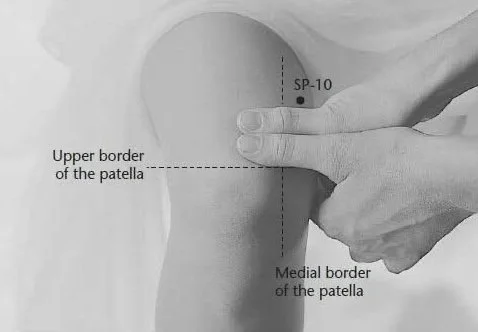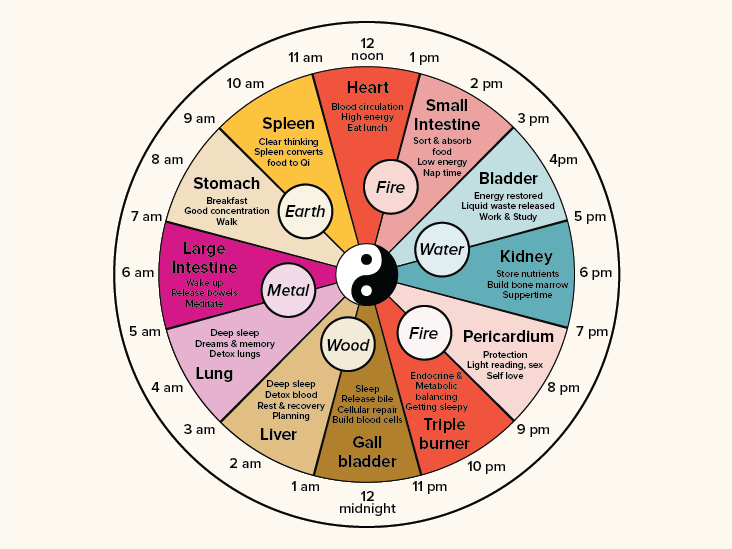Sleep and Chinese Medicine
If sleep is elusive for you, read on to figure out what might be causing your sleep problems, and perhaps find some golden nuggets you can implement to support your sleep at home!
Firstly, when looking at poor sleep we want to know if you have problems falling asleep or staying asleep, or perhaps both.
If you have problems falling asleep, we want to know what is happening during this time for you. Is your mind running rampant with random thoughts? Or are you anxiously spiralling? Are you just tossing and turning or ate you calm? How long are you lying there before you drift off, and once you drift off, do you wake easily? The answers to these questions help us (your Chinese Medicine Practitioner) attribute what organ systems need balancing directly.
Problems falling asleep can often be attributed to what we call blood deficiency. In Chinese Medicine we say the spirit is housed in the blood, and if there is not enough blood, the spirit can become unanchored, agitated and float. This causes restless thoughts, inability to concentrate and fogginess, among other symptoms. This is particularly evident of an evening, as night is a yin time (opposed to the day which is considered yang). So, if someone has a blood deficiency, it becomes even more pronounced at night when yin is naturally meant to be in abundance. This unanchored yang (out of balance by lack of blood) is what causes the poor sleep.
Supporting your blood is key to help you fall asleep easily again. Although, depending on your level of depletion and your active consumption of blood, it will vary how long it takes you to build blood.
Over-exercising especially HIIT, pilates, running long distances multiple times a week, or even daily are said to deplete your blood. This is because blood regenerates with rest. So, to support your blood it is important to find a balance between movement and rest. Now, this is not your permission to turn on Netflix and become a couch potato, because blood does need some movement to regenerate. When healing from blood deficiency we recommend gentle movement daily, and small bursts of it. Practises such as walking, hatha or yin yoga, swimming or any other gentle form of exercise is supportive. We just want to avoid excessive anything. Chinese medicine is all about balance.
A key way to build blood is to look at what you’re consuming and switch to more blood nourishing foods such as chlorophyll rich foods/spirulina greens powder, bone broth, slow cooked beef, marrow, beef liver (can come encapsulated for ease), collagen powder, and a different variety of legumes and beans. I usually recommend a collagen drink in the evening to support the shen & blood at this rest time.
Acupuncturist’s can use specific blood nourishing points to correct body systems. The Acu-point SP10 is a favourite of mine, it is located on the inside of the leg, about 2-3 inches just above the outer/inner knee, your finger slides into a hollow and that’s how you know you’ve found it. This Acu-point can be stimulated with gentle pressure for 30-60 sec having a pause and doing it again 3-4 more times. You can repeat this multiple times throughout the day.
Chinese Herbal medicine has blood nourishing herbs, and there is a formula that builds blood with 4 beautiful herbs! This formula is commonly added with another formula to match your constitution. Because behind every blood deficient person, we want to get to the root, or the why you became blood deficient. Chinese herbs are powerful allies in your healing journey, and as such they need to be prescribed by someone trained in Chinese medicine to understand how they work.
Problems staying asleep such as sleeping lightly or waking at any noise, is a deeper type of deficiency. It can often signal that your HPA axis is dysregulated and you’re stuck in a stress response. As a result, you don’t feel safe enough to fall asleep. It could also indicate a yin deficiency. Yin is a deeper level than blood in the Chinese medicine framework, and often blood deficient sleep patterns, if left untreated, can progress to yin deficient sleep patterns. It is quite common to experience a mix of the two in clinic.
Treating yin deficiency has all the same at home protocols as treating blood deficiency, with slighter urgency of maintaining your wellness. Boundaries are important to stop over-extending yourself, self discipline is required to make sure you rest, or keep up your treatments. From a practitioner’s point of view, the Acu-points and the herbs we use are more tailored to tonifying yin. A favourite point that comes to mind is Kidney 6, it is located just below the inside ankle bone. The herbs used are more moistening and focus on yin nourishing, although the practitioner has to take in account the patients state of digestion as often yin herbs can be a bit cloying for the body. If the patient is experiencing loose stools or bloating, the practitioner needs to work on the patient’s digestion and might start with lighter blood tonifying herbs first before progressing to the yin tonic herbs.
Sometimes we have outliers, and these are people who sleep fairly soundly but wake at a certain time consistently. This is treated depending on the time they way up, and we have a whole other Instagram post explaining this in detail. This is known as the horary clock.
Chinese Medicine 24hr Circadian Clock ⏰
This clock shows the cycle of qi (energy) in the meridians throughout a 24 hour period. The qi cycles on a 2 hourly basis, and so if you’re finding you’re waking up at a certain time it can point to a disharmony perhaps stagnation or deficiency in that organ & meridian system OR the organ & meridian system on the other side of the clock. For example, you find you wake up at 2am each night, this is the time of the liver. The liver is part of the wood element, and it is often the first to get affected when there is stress, stagnation, and unexpressed emotions. So, to stop you waking up at this time it would be key to balance your liver or wood element, which the liver is a part of. Alternatively (and possibly sometimes concurrently) it could affect the small intestine meridian & organ system which is on the other side of the clock at 2pm. 2am is when the qi is strongest in the liver but weakest in the small intestine so problems can show up here. All of these things are going through your practitioner’s mind when they’re going through a consult with you. They are getting to the root of why your sleep is disturbed, what meridian system is out of balance.
As we know, the qi is cycled through all the meridians through a 24 hour period. So, overtime if left untreated minor complaints, in this blog we’re talking about sleep, can slowly get worst and affect multiple meridian systems making it more complicated and time consuming to treat. This could be true for any niggling sign/symptom you have. Don’t feel disheartened by this. It is not impossible to treat, it is just adjusting your expectations that if you’ve had poor sleep for 10 years, it is unlikely to resolve completely in 1 or even 2 treatments.
At Ochre, our practitioners track changes to your sleep and overall health to make sure you are trending in the right direction. We think of all of these things, and give you personalised lifestyle advice to support your constitution from a Chinese Medicine perspective. If you’re proactive and you’re able to make the changes and take your herbs consistently twice a day you’ll be setting yourself up for success!



